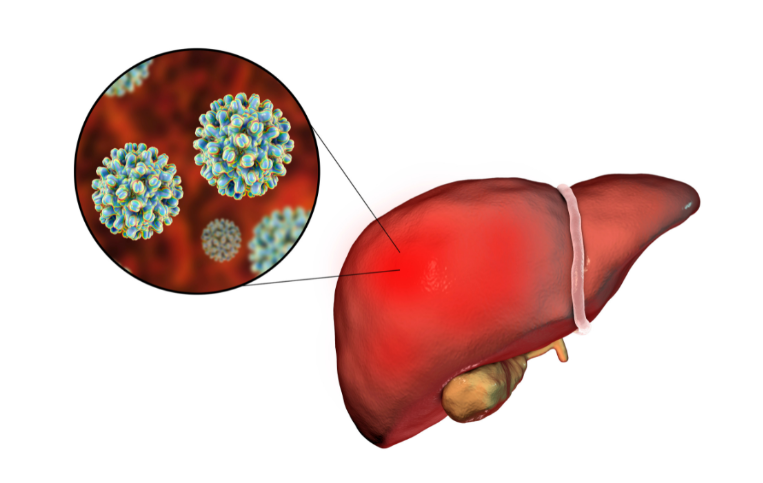

- nga një nënë e infektuar tek një fëmijë;
- seksualisht gjatë marrëdhënieve seksuale të pambrojtura;
- me pështymë përmes një puthjeje, një furçë dhëmbësh (me një formë aktive të sëmundjes, virusi i hepatitit B mund të përmbahet në pështymë në sasi të mjaftueshme për infeksion), përmes një krehër hekuri, gërshërë të përdorur nga një person i infektuar;
– sekrecionet menstruale, vaginale dhe lëngu seminal;
– si rezultat i përdorimit të përsëritur të shiringave dhe gjilpërave në institucionet mjekësore ose në mesin e përdoruesve të drogës me injeksion.
Përveç kësaj, infeksioni mund të ndodhë gjatë procedurave mjekësore, tatuazheve ose përdorimit të briskut ose sendeve të ngjashme të kontaminuara me gjak të infektuar. Ka raste të njohura të fëmijëve që janë infektuar me virusin e hepatitit B në një kuti me rërë pasi janë injektuar me një shiringë që është përdorur më parë për injektimin e drogës
. enët etj me një person të infektuar.
Një nga mjekët pediatër më të njohur në Ukrainë, Yevgeny Komarovskyi, shpjegon:
“Zemërat për domosdoshmërinë (vaksinimi kundër hepatitit) janë të përshtatshme për TË GJITHË vetëm deri në një pikë të caktuar. Ato janë veçanërisht të përshtatshme kur fëmija është i shëndetshëm, nuk merr injeksione, nuk trajton dhëmbët dhe nuk pikon asgjë në venë. Zoti na ruajt, mos mendo se dua të xhindos... Por është e pamundur të jetosh jetën dhe të mos sëmuresh kurrë rëndë - në nivelin e spitalit, me pika e injeksione. Dhe edhe nëse babi është një mjek që nuk do ta lërë askënd pranë fëmijës pa një shiringë të disponueshme, i cili do të japë një garanci se gjithçka do të jetë në rregull kur babi nuk është afër - kur ambulanca e merr nga kopshti, kur dera është mbyllur - në sallën e operacionit, në repartin e terapisë intensive etj. Le të shpresojmë që ky fat i tmerrshëm të na kalojë. Por pikërisht në vendin tonë, ku "çdo gjë është e disponueshme" është vetëm një teori, ku kontigjenti i donatorëve dhe cilësia e kërkimit të barnave nuk janë gjithmonë në nivelin më të lartë, ku preparatet e gjakut, për shembull, interferoni dhe gama globulinat, përshkruhen më shpesh se sa do të donim... ndaj, duhet të vaksinojmë TË GJITHË kundër hepatitit B!”.
Është gjithashtu e rëndësishme të kuptohet se infeksionet kronike zhvillohen në 80%-90% të foshnjave të infektuara me hepatit B gjatë vitit të parë të jetës dhe në 30%-50% të fëmijëve të infektuar me hepatit B para moshës 6 vjeç. Qëndrimi i zgjatur i virusit në qelizat e mëlçisë mund të provokojë zhvillimin e cirrozës dhe kancerit të mëlçisë. Kështu, fëmijët e vitit të parë të jetës kanë rrezikun më të madh të zhvillimit të këtyre komplikimeve fatale. Kjo është arsyeja pse ata duhet të vaksinohen në kohë kundër këtij infeksioni. Domethënë, vaksina kundër hepatitit B është, në fakt, një vaksinë që parandalon kancerin. Prandaj, është shumë e rëndësishme të mos refuzoni të vaksinoni fëmijën kundër hepatitit B në maternitet, si dhe në të ardhmen.
Vaksina e hepatitit B është absolutisht e sigurt. Teknologjia e prodhimit të tij është e tillë që nuk përmban as një shkaktar të gjallë dhe as të vrarë të sëmundjes . Vaksina prodhohet duke përdorur teknologjinë rekombinante të ADN-së. Një plazmid që përmban gjenin e antigjenit sipërfaqësor të virusit të hepatitit B (HBsAg) futet në majanë e zakonshme të furrës, e cila më pas prodhon HBsAg. HBsAg mblidhet dhe pastrohet. Kjo vaksinë nuk mund të shkaktojë infeksion të virusit të hepatitit B (pasi ky proces nuk prodhon ADN virale potencialisht infektive ose grimca të plota virale), por prodhon imunitet të qëndrueshëm kundër tij . Reagimet intensive lokale (skuqje, dhimbje në vendin e injektimit) dhe të përgjithshme (rritje e temperaturës së trupit) zakonisht nuk regjistrohen në vaksinën e hepatitit B, dhe më së shpeshti ato transferohen "në mënyrë të padukshme" tek fëmija. Pas futjes së imunizimit masiv kundër hepatitit B, incidenca e formave akute në botë u ul 10 herë.
Vaksinimi i fëmijëve kundër hepatitit B është i përfshirë në kalendarin kombëtar të vaksinimit dhe kryhet në institucionet mjekësore komunale pa pagesë për pacientin. Aktualisht, vaksina EUVAX B (prodhuesi: LG Life Sciences Ltd., Korea e Jugut) është në dispozicion për parandalimin e kësaj sëmundjeje në të gjitha rajonet e Ukrainës . Vaksina e hepatitit B Engerix-B (prodhuesi: GlaxoSmithKline Biologicals S.A., Belgjikë) është gjithashtu i disponueshëm në Ukrainë për t'u blerë me shpenzimet e veta. Sipas Kalendarit Kombëtar të Vaksinimit, fëmija merr dozën e parë të vaksinës së hepatitit B në ditën e parë të jetës në maternitet. E dyta - në moshën 2 muaj, e treta - në moshën 6 muaj. Një kurs vaksinimi me 3 doza siguron imunitet të qëndrueshëm gjatë gjithë jetës në 98-100% të të vaksinuarve.
Në Ukrainë, vaksinimi kundër hepatitit B u bë i disponueshëm për foshnjat pas vitit 2001, kështu që të rriturit e lindur më herët duhet të vaksinohen.
Të rriturit që duan të vaksinohen kundër hepatitit mund të marrin 3 doza të vaksinës Engerix-B të hepatitit B ose vaksinën e kombinuar të hepatitit A dhe hepatitit B Twinrix.
Për momentin, vaksinimi kundër hepatitit B për të rriturit nuk sigurohet nga buxheti i shtetit, ndaj për vaksinimin mund të caktoni një takim në një institucion mjekësor privat ose ta blini vetë vaksinën në një farmaci dhe ta administroni atë në institucionin mjekësor ku ndodheni. të regjistruar (ose në klinikën më të afërt ambulatore, nëse jeni person i zhvendosur brenda vendit).
Sipas të dhënave të siguruara me kërkesë të redaktorëve nga Qendra e Shëndetit Publik të Ukrainës, në vitin 2023, 759 raste të hepatitit akut B u regjistruan në territorin e Ukrainës . Kështu, krahasuar me vitin 2022, incidenca e hepatitit akut B u rrit me 45,96%.
Në fund të vitit 2023, në Ukrainë u regjistruan 1391 raste të hepatitit kronik B, që tregon një rritje të numrit të rasteve me 55,25% krahasuar me vitin 2022.
